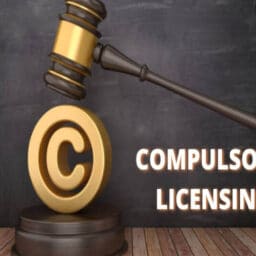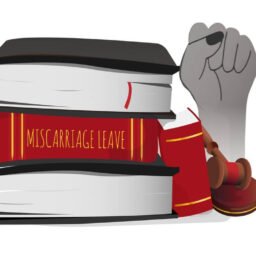INTRODUCTION
One of the most vexed questions in the whole topic of legal classification is the distinction between matters of law and matters of fact. The distinction arises in many contexts, and even within a single context there may well be competing policy motives, each supporting the drawing of the line in different places. A simple distinction between questions of law and that of fact can easily be figured out based on whether there are pre-determined answers but sometimes there arises a situation when this simple distinction doesn’t suffice and courts have to go beyond this evidence-based distinction.
THE SIMPLE DISTINCTION
All those issues for which there are pre-defined provisions in the law or pre-determined answers are considered to be issues of law. Those issues for which we don’t have pre-determined solutions in law but only certain situations and facts as examples are issues of facts.
Example – X murdered Y so, the question,
- whether he used a weapon or not, will be: an issue of fact
- Whether he is liable – decided according to provisions of law: an issue of law
- What is murder – defined in Indian Penal Code[1]: an issue of law
- When and where was it committed: an issue of fact
Thus, this example illustrates that questions/issues of law are the ones which the court can adjudicate upon by referring to legislation while issues of facts have to be determined based on facts present before the court.
But there are possibilities that a particular situation might not always have pre-determined answers in any legislation or Constitution. Then, adjudicating upon matters based on this distinction is not possible and courts have to look for some other method. This is because it is not necessary that those questions for which solution cannot be found in legislation, will be questions of fact.
EXAMPLES WHERE THERE ARE NO PRE-DETERMINED ANSWERS:
- In many cases, the major issue for consideration has been whether all parts of the Constitution are open to Amendment by the Legislature. This is a question related to Constitutional Law but still there arise interpretational differences among different judges while for which there are no pre-determined answers. The courts in cases of Shankari Prasad [2]and Sajjan Singh[3], held that Parliament can exercise its constituent power to amend any part of the Constitution including Fundamental Rights but later, in the case of IC Golaknath[4], reversed the decision and held that Fundamental Rights in Part III [5]are not to be amended thus, there was a clear interpretational difference.
- Article 19 (2) [6]provides that State can impose ‘Reasonable Restrictions’ on the exercise of rights enshrined in Article 19 (1) [7]– but this term ‘Reasonable’ is very subjective and no law defines it.
- Sometimes, the law is worded in a way to provide leverage. For example, the law of murder [8]says, guilty to be either sentenced to life imprisonment or death and allows the court to exercise discretion as to what punishment to be ordered depending upon the nature of the offence. The law though does provide what will be the punishment, it allows the court to make an opinionated choice.
Hence, this distinction of issues of law having a pre-determined law cannot be comprehensive/enough as there are many issues of law that do not have pre-defined provisions in the law, but are still issues of law only, so, the basis of distinction then has to be changed.
FURTHER REFINING THE DISTINCTION
So, to narrow it down further, the distinction is made based on evidence –
- Matters which are to be answered with evidence – a question of fact
- Matters not requiring evidence but having pre-determined answers – a question of law
Example – Matter before a trial court and the court says that A was driving at speed of 50km/h which is considered unreasonable in Delhi streets. Now to determine whether A was driving at the said speed, the evidence will be the meter readings and hence, this will be a question of fact. And if he was to be liable or not, will be a question of law.
An exception to this distinction – But sometimes, matters requiring evidence might turn into matters having pre-Determined answers in the laws.
Sometimes law creates a deeming provision that is, no matter what feature is taken into consideration, if the law declares something to be specific, it will have to be considered of that nature only. Thus, deeming provision is a section or clause of a statute, regulation, or another legal instrument that states how something is to be treated or regarded. So, a matter which otherwise seems to be requiring evidence turns into a matter of law by fictionalization.
Example 1 – A company declared to be a legal entity by the virtue of legislation irrespective of what its physical features say about it. If its legal colour is such that law says that it is a legal entity so even if the feature says it needs evidence, legality says it doesn’t and the latter prevails.
Example 2 – According to Section 304-B of IPC[9], to make out a case of dowry death, a woman should have died of burns or other bodily injuries or “otherwise than under normal circumstances” within seven years of her marriage[10]. This means that if a married woman dies within the first seven years of marriage, it will be presumed to be a dowry death. This is a matter of fiction as logic dictates just because wife died within seven years it doesn’t necessarily mean that it is a dowry death, it can be due to another accident also but the law presumes it to be due to dowry therefore, the law here, converted a matter that otherwise required evidence into one which doesn’t and itself provides for a pre-determined answer.
Example 3 – Similarly, Section 82 of IPC [11]provides that nothing is an offence that is done by a child under seven years of age. This follows the principle of Doli Incapax where law presumes that a child below seven years of age cannot have any sense of judgment of what is right or wrong and hence have no intention[12]. This is again, legal fiction and this cannot be challenged. So, if a six-year-old child commits murder, there is no penalty. So, even if this logically requires evidence because sometimes, a child under seven years of age might also have an intention depending upon his maturity level, but law fictionalizes it by saying it doesn’t require evidence and such a child is not mature enough to develop an intention.
Thus, what is Common in all three examples is that matters otherwise requiring explicit evidence have been converted to matters having pre-determined answers. Thus, what looked like to be a question of fact requiring evidence turned into one whose answers are provided within the laws
ASPECT OF PRESUMPTION WHEN MATTERS OF EVIDENCE TURN INTO ONE OF LAW
The presumption is a way of inferring that is presuming only if there is a previous fact that has occurred or has to be established and on basis of which presumption is made about another fact. Thus, there always has to be a pre-existing fact.
In Examples 2 and 3 given above, from one fact, another fact is being inferred with help of law and is then established, this is the aspect of presumption.
In Example 2
Set of facts presented are = that the wife died within seven years of her marriage due to bodily injuries
Based on these facts, a legal presumption is made that this death is due to dowry even though there might be other reasons for the death. This presumption here is rebuttable which means that the court will take it to be dowry death unless proven otherwise and it is on the accused party to prove that the death is in fact, not due to dowry
Similarly, in Example 3-
Facts say = that a child under seven years of age murdered someone
Based on this, it is presumed that he did not have the required intention and hence, cannot be penalized. Here, the presumption is irrebuttable because no matter what, the court always has to abide by the Doli Incapax principle.
This here, is important because if presumption had not been made, proof would have been required to establish the existence of these facts and their linkage to each other, at every stage explicit evidence would have been required here, the connection has already been made by law through presumption.
However, in Example 1, a legal title has been created for the company by legal fiction purely which confers upon the company some rights and no facts are being established so, aspect of presumption is not involved.
Another Example to explain presumption better can be the concept of “Innocent Until Proven Guilty” which arises from the Latin maxim of Ei Incumbit Probatio, Qui Dicit, Non-Qui Negat (the burden of proof lies upon the person who affirms but not on who denies). [13]When a charge is brought against a person, he is neither guilty nor innocent and there is a state of neutrality that is the charge is yet neither proved nor disproved.
So, the Fact here is = Charge neither proved nor disproved.
Based on this fact, the maxim of “Innocent Until Proven Guilty” is applied and a connection is established between ‘this maxim’ and ‘neutrality’ and in turn, the ‘innocence’ of the party is assumed. This presumption is important to start the proceedings as now the other party who brought the charges, has to prove the guilt of the accused.
But in Example 2 – the Presumption is that of guilt and not innocence, that is the accused is presumed to be guilty, and therefore, the accused or defence has to prove that the death was in fact, not due to dowry
FOR MATTERS WHERE THERE CAN BE NO EVIDENCE – MATTERS OF LAW AND DISCRETION
Matters which do not require evidence are then considered to be matters of law or matters of discretion of the court
Example – A is accused of driving at an unreasonably high speed of 70km/h on the streets of Delhi and the trial court interpreted the word ‘unreasonable’ in such a manner that held A to be liable. Now, A being unsatisfied, appealed to the High Court which then reversed the decision and said 70km/h is not an unreasonable speed in its interpretation and so, A is not liable.
So, ‘unreasonableness’ is not something that can be proved with evidence and requires the court to apply discretion. And when such discretion is applied, the court does not have to follow pre-determined answers in any laws or statutes as it used its interpretation.
EXCEPTION – MATTERS OF LAW TURNING INTO THOSE OF DISCRETION OR VICE-VERSA
When matter arrives in front of the court freshly, it is a matter of discretion, then when the court adjudicates on it and provides a solution, it turns into a one with pre-determined answers to be referred to another case with a similar set of facts arises and thus, a matter of discretion can also turn into a matter of law. A reverse of this can also happen when the court already has a precedent in front of it to follow but instead it takes a different approach and interprets certain terms differently to keep up with the evolving society and thus, matters of pre-determined answers turn into matters of discretion.
Author(s) Name: Anushka Rohilla (National Law University, Jodhpur)
References:
[1] Indian Penal Code 1860 § 302
[2] Shankari Prasad v. Union of India 1951 AIR 458, 1952 SCR 89
[3] Sajjan Singh v. State of Rajasthan 1965 AIR 845, 1965 SCR (1) 933
[4] I.C. Golaknath & Ors. V. State of Punjab & Anrs. 1967 AIR 1643, 1967 SCR (2) 762
[5] The Constitution of India, 1950
[6] The Constitution of India, 1950, Art. 19(2)
[7] The Constitution of India, 1950, Art. 19(1)
[8] Indian Penal Code 1860 §302
[9] Indian Penal Code § 304-B
[10] Krishnadas Rajagopal, ‘Dowry Deaths – Supreme Court widens the scope of Section 304-B’ The Hindu (NEW DELHI, 29 May 2021)
[11] Indian Penal Code § 82
[12] Diganth Raj Sehgal, ‘The acts done by a child and an insane person’ iPleaders, 1 November 2020 <https://blog.ipleaders.in/acts-done-child-insane-person/> accessed 3rd December 2021
[13] Arushi Lamba, ‘Ei Incumbit Probatio, Qui Dicit, Non-Qui Negat’ (B&B Associates LLP) <https://bnblegal.com/ei-incumbit-probatio-qui-dicit-non-qui-negat/> accessed 3 December 2021
















